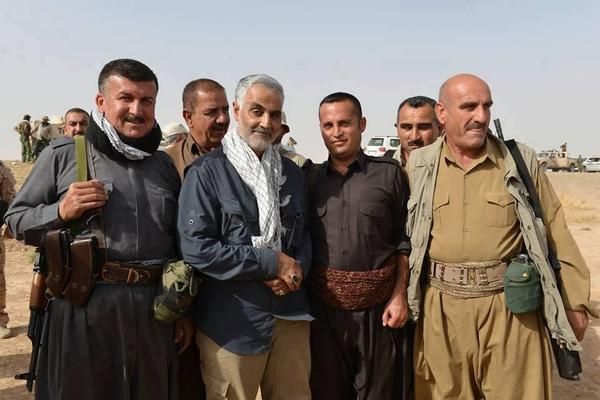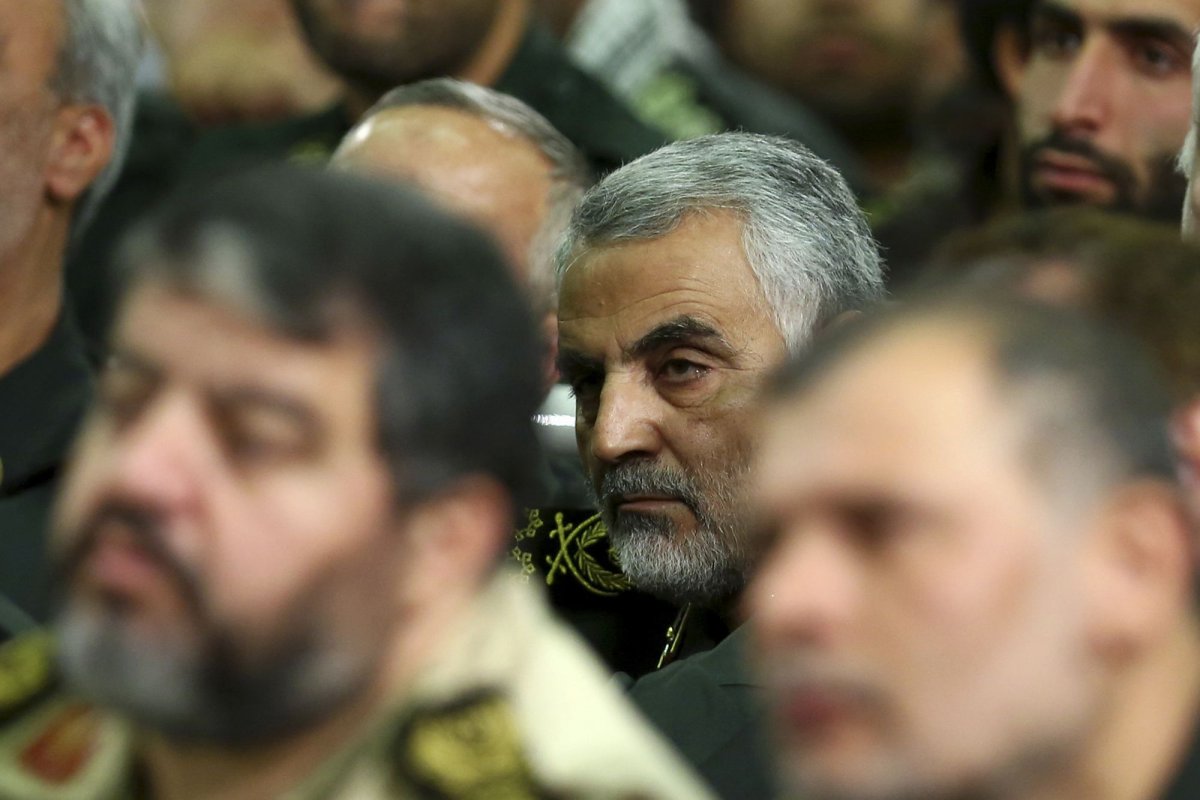
A notorious Iranian commander is spearheading the Iraqi offensive on the ISIS-held city of Tikrit, providing tactical expertise and a key link to Tehran for supplies to the Iraqi militias advancing on the terror group's territory.
This week, a combination of 30,000 Iraqi security forces, Sunni and Shia militiamen launched a campaign to retake the Sunni-majority city, the hometown of former Iraqi dictator Saddam Hussein, from the terror group after it swept through northern Iraq last summer. Iraqi security forces, backed by the majority-Shia Popular Mobilisation Units (PMU), are advancing on the city from three directions, north, east and south, where the main entry points into and out of the city lie.
Major General Qasem Soleimani, the shadowy former leader of the elite Quds Force, the special operations arm of the Iranian Revolutionary Guard Corps (IGRC), is directly overseeing the eastern offensive on Tikrit. The Iranian general has been pictured on the outskirts of the city in photos shared widely on social media.
The city is situated on the Tigris River, approximately 95 miles (150 kilometres) north of the capital Baghdad, and would provide Iraqi forces a strategic launchpad from which to attack ISIS-held Mosul, Iraq's second-largest city, further to the north.
However, it is the presence of Soleimani that reveals the influence of Iran in the fight against ISIS, says Jordan Perry, principal MENA analyst at leading global risk analytics company Verisk Maplecroft.
"It is clear that Iran is spearheading the ground offensives against the Islamic State and Soleimani, in particular, has played a leading role from the very start," he notes. "He has increasingly come to the fore and become a poster boy for the Iranian intervention in Iraq."
#Iraq A tea break for Qassem Soleimani near #Tikrit where Iraqi forces, Hashd & allies are fighting #IS. pic.twitter.com/Opmzwqm1rj
— Green lemon (@green_lemonnn) March 3, 2015
While western nations, including the U.S., were slow to react to ISIS's march across northern Iraq, Soleimani was quick to play a more public role in Tehran's efforts to tackle the terror group. For example, the commander was seen in pictures with militamen in the northern Iraqi town of Amerli when it was recaptured from ISIS last September. Last November, one of Iraq's leading Shia politicians, speaking on condition of anonymity, told Newsweek that Soleimani maintains a frequent presence in Iraq. "He is here often in Baghdad, and Northern Iraq," the official said.
"Of course the Iraqi government knows about this. He is smart. He is also a man who loves war. He knows he is good at it."
Top U.S. general Martin Dempsey has said that the involvement of Iran in the fight against ISIS in Iraq could be a positive step, as long as the situation does not descend into sectarianism, because of fears surrounding how Shia militias may treat the remaining Sunni population of Tikrit if it is recaptured. The military chief also claimed that almost two thirds of the 30,000 offensive were Iranian-backed militiamen, meaning that without Iranian assistance and Soleimani's guidance, the offensive on Tikrit may not have been possible.
"Without the financial and military backing of Iran, it would be extremely difficult for Iraq to launch a successful offensive on Tikrit, and, further up the Tigris, Mosul as well," adds Perry.
Sajad Jiyad, Iraq expert and director of research at independent consultancy Integrity, believes that Soleimani is playing such an integral role in coordinating the offensive against ISIS as he brings a vast wealth of experience and provides a key link to Tehran for material support.
"He is good at asymmetric, unconventional warfare, so parts where you have to operate in cities and dense urban areas," says Jiyad. "Where you have to deal with snipers, when you have to deal with the unconventional nature of fighting a group like ISIS, he's got that experience."

"He also has his ability to coordinate directly with Tehran. He has the authority to present Iranian support immediately, that's probably the most important thing he is offering."
Tikrit was the site of mass executions of Iraqi forces by ISIS militants at the time of its capture last June. A Human Rights Watch (HRW) report claimed that approximately 770 captured soldiers were killed after the terror group took control of former U.S. military base in the city, Camp Speicher, in executions which HRW advisor Fred Abrahams described as "crimes against humanity".
Iran has a crucial stake in the Salah ad-Din province where Tikrit is situated because of the city of Samarra, which contains the Imam al-Askari shrine, one of the most important holy sites in the world for Shia Muslims.
Uncommon Knowledge
Newsweek is committed to challenging conventional wisdom and finding connections in the search for common ground.
Newsweek is committed to challenging conventional wisdom and finding connections in the search for common ground.
About the writer
Jack is International Security and Terrorism Correspondent for Newsweek.
Email: j.moore@newsweek.com
Encrypted email: jfxm@protonmail.com
Available on Whatsapp, Signal, Wickr, Telegram, Viber.
Twitter: @JFXM
Instagram: Read more
To read how Newsweek uses AI as a newsroom tool, Click here.








